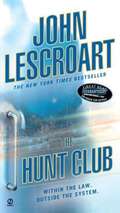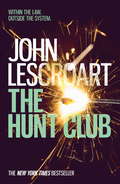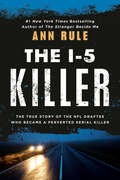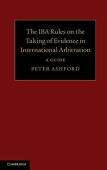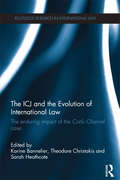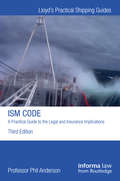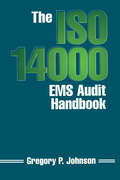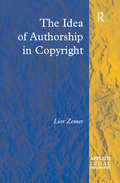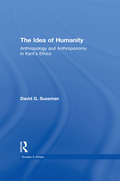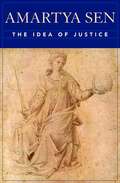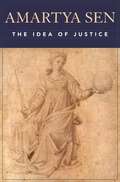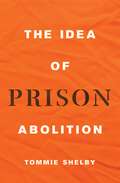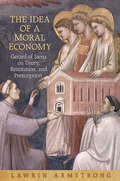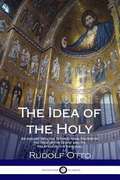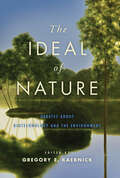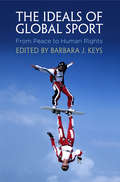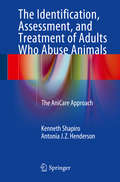- Table View
- List View
The Hunt Club (Wyatt Hunt #1)
by John LescroartA federal judge is murdered, found shot to death in his home-together with the body of his mistress. The crime grips San Francisco. To homicide inspector Devin Juhle, it first looks like a simple case of a wife's jealousy and rage. But Juhle's investigation reveals that the judge had powerful enemies ...some of whom may have been willing to kill to prevent him from meddling in their affairs. Meanwhile, private investigator Wyatt Hunt, Juhle's best friend, finds himself smitten with the beautiful and enigmatic Andrea Parisi. A lawyer who recently has become a celebrity as a commentator on Trial TV, Andrea has star power in spades, and seems bound for a national anchor job in New York. Until Juhle discovers that Andrea, too, had a connection to the judge, along with a client that had everything to gain from the judge's death. And then she suddenly disappears.... Andrea becomes Juhle's prime suspect. Wyatt Hunt thinks she may be a kidnap victim, or worse ...another murder victim. And far more than that, she's someone with whom he believes he may have a future. As the search for Andrea intensifies, Hunt gathers a loose band of friends and associates willing to bend and even break the rules, leading them all to a chilling confrontation from which none of them might escape.
The Hunt Club: A gripping and breath-taking murder mystery (Wyatt Hunt Ser.)
by John LescroartWithin the law. Outside the system.The first book in an exciting series from New York Times bestselling crime author John Lescroart, featuring private investigator Wyatt Hunt. Perfect for fans of J.J. Miller and Sheldon Siegel. 'Compulsively readable' - San Francisco Chronicle A federal judge is murdered, found shot in his home together with the body of his mistress. To homicide inspector Devin Juhle, it looks like a case of a wife's jealousy and rage. But the judge had some powerful enemies... Meanwhile, Private Investigator Wyatt Hunt finds himself smitten with the beautiful and enigmatic Andrea Parisi, a celebrity television lawyer. But Andrea, too, had a connection to the judge, along with a client that had everything to gain from the judge's death. And then she suddenly disappears...Andrea becomes Juhle's prime suspect. Wyatt Hunt thinks she may be a kidnap victim, or worse, another murder victim. And far more than that, she's someone with whom he believes he may have a future. As the search for Andrea intensifies, Hunt gathers a loose band of friends and associates willing to bend and even break the rules, leading to a chilling confrontation from which none of them might escape.What readers are saying about The Hunt Club:'As in other Lescroart books, this reading leads you deep into the story... and then turns you around''Another thrilling tale of justice in San Francisco' 'The Hunt Club is fast-paced, exiting, suspenseful and filled with surprises'
The Hunted Heir: A Romantic Legal Drama
by Jayna BreighAfter a tragic loss, private investigator Nona Taylor swore off romantic entanglements and distanced herself from the world. Once a year, on New Year's Eve, she attends church to beg God for forgiveness, haunted by the guilt of driving her twin sister to her death. Attorney DeMarcus Johnson is determined to climb the ladder to partnership by winning high-profile cases at his Los Angeles law firm, harnessing his ADHD hyperfocus to excel. He's everything Nona knows to steer clear of--an overconfident ex-jock willing to do anything for success. Their worlds collide when Nona's pastor receives a mysterious letter claiming he's the sole heir to a substantial estate. Desperate for answers, Nona infiltrates a lavish charity ball, only to be found out by a suspicious stranger--so she latches onto DeMarcus and concocts a fib about being his fiancée. Now bound by a false engagement, the pair reluctantly join forces to discover the truth about the inheritance. But when an unseen enemy strikes, they realize the stakes are higher than they thought. Can Nona and DeMarcus overcome their differences to keep the pastor safe, secure DeMarcus's partnership, and preserve a future for themselves?
The I-5 Killer
by Ann RuleThe terrifying true crime story of the I-5 serial killer from Ann Rule, the #1 New York Times bestselling author of The Stranger Beside Me. Randall Woodfield had it all. He was an award-winning student and star athlete. he was drafted for pro football by the Green Bay Packers, and chosen by Playgirl as a centerfold candidate. Working in the swinging West Coast bar scene, he had his pick of willing sexual prospects. But Randall Woodfield wanted more than just sex. An appetite for unspeakable violent acts led him to cruise the I-5 highway through California, Oregon, and Washington, leaving a trail of victims along the way. As the list of his victims grew to a total of at least 44, the police faced the awesome challenge of catching and convicting a suspect who seemed to handsome and appealing to have committed such ugly crimes—crimes that filled every woman within his striking range with feat and horror....
The IBA Rules on the Taking of Evidence in International Arbitration
by Peter AshfordThe IBA Rules are the most common feature of international arbitration around the world, yet so far little work has been done exploring the Rules themselves. In this practical guide, Peter Ashford combines a detailed discussion of the Rules and the commentary from the Drafting Committee with a tabular view of the interaction between the Rules and those of the main arbitration institutions. Written by a respected and experienced arbitration practitioner, the guide conveniently brings into one place materials that will assist in the practical application of the IBA Rules. This contribution to an under-covered area of international arbitration provides an invaluable handbook for arbitration practitioners in law firms, chambers, and general or in-house counsel in large corporations.
The ICJ and the Evolution of International Law: The Enduring Impact of the Corfu Channel Case (Routledge Research in International Law)
by Karine Bannelier Theodore Christakis Sarah HeathcoteIn 1949 the International Court of Justice (ICJ) handed down its first judgment in the Corfu Channel Case. In diffusing an early Cold War dispute, the Court articulated a set of legal principles which continue to shape our appreciation of the international legal order. Many of the issues dealt with by the Court in 1949 remain central questions of international law, including due diligence, forcible intervention and self-help, maritime operations, navigation in international straits and the concept of elementary considerations of humanity. The Court’s decision has been cited on numerous occasions in subsequent international litigation. Indeed, the relevance of this judgment goes far beyond the subject matter dealt with by the Court in 1949, extending to pressing problems such as trans-boundary pollution, terrorism and piracy. In short, it was and remains a thoroughly modern decision — a landmark for international law; and one which today warrants reconsideration. Taking a critical approach, this book examines the decision’s influence on international law generally and on some fields of international law like the law of the sea and the law of international responsibility specifically. The book collects the commentary of a distinguished set of international law scholars, including four well-known international judges. The contributors consider not only the history of the Corfu Channel Judgment and its contribution to the development of international law, but also its resonance in many contemporary issues in the field of international law. This book will be of particular interest to academics and students of International Law, International Relations and Legal History
The ICSID Convention: A Commentary
by August Reinisch Christoph H. Schreuer Loretta Malintoppi Anthony SinclairThis unique compendium offers an article-by-article commentary to the Convention on the Settlement of Investment Disputes between States and Nationals of Other States. Providing a comprehensive explanation of the functioning of this important mechanism for the settlement of investor-host State disputes, it incorporates the preparatory work, the Convention's text, various rules and regulations adopted under the Convention, the practice of arbitral tribunals under the Convention and academic writings on the subject. The first edition of this work has been relied upon by numerous arbitral tribunals. This second edition follows the same system and approach, but extensive updates reflect the vast increase in arbitral practice since the publication of the first edition. A number of novel issues that have emerged through this practice are now addressed, making this practice-oriented guide an indispensable tool for anyone dealing with the ICSID Convention.
The ISM Code: A Practical Guide To The Legal And Insurance Implications (Lloyd's Practical Shipping Guides)
by Phil AndersonThe ISM Code has been mandatory for almost every commercial vessel in the world for more than a decade and nearly two decades for high risk vessels, yet there is very little case law in this area. Consequently, there remains a great deal of confusion about the potential legal and insurance implications of the Code. <P><P> This third edition represents a major re-write and addresses significant amendments that were made to the ISM Code on 1st July 2010 and 1st January 2015. <P><P> This book provides practitioners with a practical overview of, and much needed guidance on, the potential implications of failing to implement the requirements of the Code. It will be hugely valuable to DPAs, managers of ship operating companies, ship masters, maritime lawyers and insurance claims staff.
The ISO 14000 EMS Audit Handbook
by Greg JohnsonThe ISO 14000 EMS Audit Handbook is an innovative and cost-effective approach for the Environmental Management System (EMS) audit to ISO 14001. The Handbook presents comprehensive strategies for conducting all phases of the EMS audit, including effective assessment processes for determining improved environmental performance.
The Idea of Authorship in Copyright (Applied Legal Philosophy)
by Lior ZemerAs information flows become increasingly ubiquitous in our post digital environment, the challenges to traditional concepts of intellectual property and the practices deriving from them are immense. The romantic understanding of the lone author as an endless source of new creations has to face these challenges. In order to do so, this work presents a collectivist model of intellectual property rights. The core argument is that since copyright works enjoy profit from significant public contribution, they should not be privately owned, but considered to be a joint enterprise, made real by both the public and author. It is argued that every copyright work depends on and is reflective of the author's exposure to externalities such as language, culture and the various social events and processes that occur in the public domain, therefore copyright works should not be regarded as exclusive private property. The study takes its organizing principle from John Locke, defining and proving the fatal flaw inherent in debates on copyright: on the one hand the copyright community is eager to arm authors with a robust property right over their creation, while on the other this community totally ignores the fact that the exposure of the individual to externalities is what makes him or her capable of creating material that is copyrightable. Just as Locke was against the absolute authority of kings, the expressed view of the study is against the exclusive right an author can claim.
The Idea of Evil
by Peter DewsThis timely book by philosopher Peter Dews explores the idea of evil, one of the most problematic terms in the contemporary moral vocabulary. Surveys the intellectual debate on the nature of evil over the past two hundred years Engages with a broad range of discourses and thinkers, from Kant and the German Idealists, via Schopenhauer and Nietzsche, to Levinas and Adorno Suggests that the concept of moral evil touches on a neuralgic point in western culture Argues that, despite the widespread abuse and political manipulation of the term ‘evil’, we cannot do without it Concludes that if we use the concept of evil, we must acknowledge its religious dimension
The Idea of Human Rights
by Charles R. BeitzThe international doctrine of human rights is one of the most ambitious parts of the settlement of World War II. Since then, the language of human rights has become the common language of social criticism in global political life. This book is a theoretical examination of the central idea of that language, the idea of a human right. In contrast to more conventional philosophical studies, Charles Beitz takes a practical approach, looking at the history and political practice of human rights for guidance in understanding the central idea. Betiz presents a model of human rights as matters of international concern whose violation by governments can justify international protective and restorative action ranging from intervention to assistance. He proposes a schema for justifying human rights and applies it to several controversial cases--rights against poverty, rights to democracy, and the human rights of women.
The Idea of Humanity: Anthropology and Anthroponomy in Kant's Ethics (Studies In Ethics)
by David G SussmanExamining the significance of Kant's account of "rational faith," this study argues that he profoundly revises his account of the human will and the moral philosophy of it in his later religious writings.First Published in 2001. Routledge is an imprint of Taylor & Francis, an informa company.
The Idea of Justice
by Amartya SenSocial justice: an ideal, forever beyond our grasp; or one of many practical possibilities? More than a matter of intellectual discourse, the idea of justice plays a real role in how—and how well—people live. And in this book the distinguished scholar Amartya Sen offers a powerful critique of the theory of social justice that, in its grip on social and political thinking, has long left practical realities far behind. The transcendental theory of justice, the subject of Sen’s analysis, flourished in the Enlightenment and has proponents among some of the most distinguished philosophers of our day; it is concerned with identifying perfectly just social arrangements, defining the nature of the perfectly just society. The approach Sen favors, on the other hand, focuses on the comparative judgments of what is “more” or “less” just, and on the comparative merits of the different societies that actually emerge from certain institutions and social interactions. At the heart of Sen’s argument is a respect for reasoned differences in our understanding of what a “just society” really is. People of different persuasions—for example, utilitarians, economic egalitarians, labor right theorists, no-nonsense libertarians—might each reasonably see a clear and straightforward resolution to questions of justice; and yet, these clear and straightforward resolutions would be completely different. In light of this, Sen argues for a comparative perspective on justice that can guide us in the choice between alternatives that we inevitably face.
The Idea of Justice
by Amartya SenCreated by the continuous feedback of a "student-tested, faculty-approved" process, RELG: WORLD, Second Edition, delivers a visually appealing and succinct print component, tear-out review cards, and a consistent online offering with CourseMate that includes an eBook and a set of interactive digital tools--all at a value-based price. This book frames different religions as encounters between the religions' adherents and individuals who are much like readers, making the subject come alive. The eBook includes numerous annotated links to videos, audio, Google Earth(tm) explorations, and primary sources.
The Idea of Natural Rights: Studies on Natural Rights, Natural Law and Church Law, 1150-1625
by Brian Tierney. " . . a compelling historical account of natural rights. . . . That Tierney brings to his historical task a thorough acquaintance with major contemporary theories of moral and legal rights gives his work additional value for ethicists. " - Religious Studies Review . " . . a tour de force of integration and learning. . . . It is a synthesis that will become the required starting point in all future efforts to write about the history of rights. " - Studia canonica This series, originally published by Scholars Press and now available from Eerdmans, is intended to foster exploration of the religious dimensions of law, the legal dimensions of religion, and the interaction of legal and religious ideas, institutions, and methods. Written by leading scholars of law, political science, and related fields, these volumes will help meet the growing demand for literature in the burgeoning interdisciplinary study of law and religion.
The Idea of Prison Abolition (Carl G. Hempel Lecture Series #13)
by Tommie ShelbyAn incisive and sympathetic examination of the case for ending the practice of imprisonmentDespite its omnipresence and long history, imprisonment is a deeply troubling practice. In the United States and elsewhere, prison conditions are inhumane, prisoners are treated without dignity, and sentences are extremely harsh. Mass incarceration and its devastating impact on black communities have been widely condemned as neoslavery or &“the new Jim Crow.&” Can the practice of imprisonment be reformed, or does justice require it to be ended altogether? In The Idea of Prison Abolition, Tommie Shelby examines the abolitionist case against prisons and its formidable challenge to would-be prison reformers.Philosophers have long theorized punishment and its justifications, but they haven&’t paid enough attention to incarceration or its related problems in societies structured by racial and economic injustice. Taking up this urgent topic, Shelby argues that prisons, once reformed and under the right circumstances, can be legitimate and effective tools of crime control. Yet he draws on insights from black radicals and leading prison abolitionists, especially Angela Davis, to argue that we should dramatically decrease imprisonment and think beyond bars when responding to the problem of crime.While a world without prisons might be utopian, The Idea of Prison Abolition makes the case that we can make meaningful progress toward this ideal by abolishing the structural injustices that too often lead to crime and its harmful consequences.
The Idea of a Moral Economy: Gerard of Siena on Usury, Restitution, and Prescription
by Lawrin ArmstrongThe Idea of a Moral Economy is the first modern edition and English translation of three questions disputed at the University of Paris in 1330 by the theologian Gerard of Siena. The questions represent the most influential late medieval formulation of the natural law argument against usury and the illicit acquisition of property. Together they offer a particularly clear example of scholastic ideas about the nature and purpose of economic activity and the medieval concept of a moral economy.In his introduction, editor Lawrin Armstrong discusses Gerard's arguments and considers their significance both within the context of scholastic philosophy and law and as a critique of contemporary mainstream economics. His analysis demonstrates how Gerard's work is not only a valuable source for understanding economic thought in pre-modern Europe, but also a fertile resource for scholars of law, economics, and philosophy in medieval Europe and beyond.
The Idea of the Holy: An Inquiry into the Non-Rational Factor in the Idea of the Divine and Its Relation to the Rational
by John Harvey Rudolf OttoRudolf Otto's classic The Idea of the Holy brims with deep theological and philosophical insights into the theory of religion and spiritual belief in God. As both a theologian and a philosopher, Otto was fascinated by how the rational and non-rational interact and interplay with regard to humanity's religious beliefs. This investigation determines that valid, non-rational experiences are as poignant in the development of knowledge - yet how do we quantify and apportion value to various rational arguments for faith, and the experiences so many believers have had over the millennia? <p> The author delves into these arguments, and valiantly attempts to determine how the divine interacts with various emotions. He coins the term 'numinous' from the root word 'numen', to denote an emotional state of consciousness apt to receive spiritual insight. The many emotions and attuning of the soul to God falls under the designation, and it proved to be one of the most important ideas Otto would ever advance. <p> The Idea of the Holy remains an important text for students of both philosophy and religion, as well as spiritually inclined readers. Although Christian believers will profit from its concepts and deep discussion of spiritual matters, those of a different faith or of none often come to respect the intricacy and depth with which Otto explains and qualifies his theology in rational and non-rational terms. This edition contains the text of the original first translation to English of 1923 by John W. Harvey, who strived to preserve the clarity, concision and poise of Otto's lessons. Since the book was originally published in German in 1918, it has been translated into over twenty different languages.
The Ideal of Nature: Debates about Biotechnology and the Environment
by Gregory E. KaebnickGoing back at least to the writings of John Stuart Mill and Jean-Jacques Rousseau, people have argued for and against maintaining a state of nature. Is there an inherent virtue in leaving alone a naturally occurring condition, or does the human species thrive when we find ways to improve our circumstances? This volume probes whether "nature" and "the natural" are capable of guiding moral deliberations in policy making.Drawing on philosophy, religion, and political science, this book examines three questions central to debates over the idea of "nature" in human action. Conceptually, it asks what the term means, how it should be considered, and if it is, even in part, a social construct. From a moral perspective, the contributors question if being "natural" is itself of value or if its worth is only as a means to advance other morally acceptable ends. Politically, essays discuss whether appeals to nature can and should affect public policy and, if so, whether they are moral trump cards or should instead be fitted alongside or weighed against other concerns. Achieving consensus on these questions has proven elusive and seems unattainable. This should not, however, be an obstacle to moving the debate forward. By bringing together disparate approaches to addressing these concepts, The Ideal of Nature suggests the possibility of intermediate positions that move beyond the usual full-throated defense and blanket dismissal found in much of the debate. Scholars of bioethics, environmental philosophy, religious studies, sociology, public policy, and political theory will find much merit in this book’s lively discussion.
The Ideal of Nature: Debates about Biotechnology and the Environment
by Gregory E. KaebnickIn this provocative anthology, scholars consider the meaning and merits of “nature” in debates about biotechnology and the environment.Drawing on philosophy, religion, and political science, this book asks what the term “nature” means, how it should be considered, and if it is—even in part—a social construct. The contributors question if the quality of being “natural” is intrinsically valuable. They also discuss whether appeals to nature can and should affect public policy and, if so, whether they are moral trump cards or should instead be weighed against other concerns.Though consensus on these questions remains elusive, this should not be an obstacle to moving the debate forward. By bringing together disparate approaches to addressing these concepts, The Ideal of Nature suggests the possibility of intermediate positions that move beyond the usual full-throated defense and blanket dismissal found in much of the debate. Scholars of bioethics, environmental philosophy, religious studies, sociology, public policy, and political theory will find much merit in this book’s lively discussion.
The Idealist
by Justin PetersA smart, lively history of the Internet free culture movement and its larger effects on society--and the life and shocking suicide of Aaron Swartz, a founding developer of Reddit and Creative Commons--from Slate correspondent Justin Peters.Aaron Swartz was a zealous young advocate for the free exchange of information and creative content online. He committed suicide in 2013 after being indicted by the government for illegally downloading millions of academic articles from a nonprofit online database. From the age of fifteen, when Swartz, a computer prodigy, worked with Lawrence Lessig to launch Creative Commons, to his years as a fighter for copyright reform and open information, to his work leading the protests against the Stop Online Piracy Act (SOPA), to his posthumous status as a cultural icon, Swartz's life was inextricably connected to the free culture movement. Now Justin Peters examines Swartz's life in the context of 200 years of struggle over the control of information. In vivid, accessible prose, The Idealist situates Swartz in the context of other "data moralists" past and present, from lexicographer Noah Webster to ebook pioneer Michael Hart to NSA whistleblower Edward Snowden. In the process, the book explores the history of copyright statutes and the public domain; examines archivists' ongoing quest to build the "library of the future"; and charts the rise of open access, copyleft, and other ideologies that have come to challenge protectionist IP policies. Peters also breaks down the government's case against Swartz and explains how we reached the point where federally funded academic research came to be considered private property, and downloading that material in bulk came to be considered a federal crime. The Idealist is an important investigation of the fate of the digital commons in an increasingly corporatized Internet, and an essential look at the impact of the free culture movement on our daily lives and on generations to come.
The Idealist: Aaron Swartz and the Rise of Free Culture on the Internet
by Justin PetersThis smart, “riveting” (Los Angeles Times) history of the Internet free culture movement and its larger effects on society—and the life and shocking suicide of Aaron Swartz, a founding developer of Reddit and Creative Commons—written by Slate correspondent Justin Peters “captures Swartz flawlessly” (The New York Times Book Review).Aaron Swartz was a zealous young advocate for the free exchange of information and creative content online. He committed suicide in 2013 after being indicted by the government for illegally downloading millions of academic articles from a nonprofit online database. From the age of fifteen, when Swartz, a computer prodigy, worked with Lawrence Lessig to launch Creative Commons, to his years as a fighter for copyright reform and open information, to his work leading the protests against the Stop Online Piracy Act (SOPA), to his posthumous status as a cultural icon, Swartz’s life was inextricably connected to the free culture movement. Now Justin Peters examines Swartz’s life in the context of 200 years of struggle over the control of information. In vivid, accessible prose, The Idealist situates Swartz in the context of other “data moralists” past and present, from lexicographer Noah Webster to ebook pioneer Michael Hart to NSA whistleblower Edward Snowden. In the process, the book explores the history of copyright statutes and the public domain; examines archivists’ ongoing quest to build the “library of the future”; and charts the rise of open access, the copyleft movement, and other ideologies that have come to challenge protectionist intellectual property policies. Peters also breaks down the government’s case against Swartz and explains how we reached the point where federally funded academic research came to be considered private property, and downloading that material in bulk came to be considered a federal crime. The Idealist is “an excellent survey of the intellectual property battlefield, and a sobering memorial to its most tragic victim” (The Boston Globe) and an essential look at the impact of the free culture movement on our daily lives and on generations to come.
The Ideals of Global Sport: From Peace to Human Rights (Pennsylvania Studies in Human Rights)
by Barbara Keys"Sport has the power to change the world," South African president Nelson Mandela told the Sporting Club in Monte Carlo in 2000. Today, we are inundated with similar claims—from politicians, diplomats, intellectuals, journalists, athletes, and fans—about the many ways that international sports competitions make the world a better place. <P><P> Promoters of the Olympic Games and similar global sports events have spent more than a century telling us that these festivals offer a multitude of "goods": that they foster friendship and mutual understanding among peoples and nations, promote peace, combat racism, and spread democracy. <P><P>In recent years boosters have suggested that sports mega-events can advance environmental protection in a world threatened by climate change, stimulate economic growth and reduce poverty in developing nations, and promote human rights in repressive countries. If the claims are to be believed, sport is the most powerful and effective form of idealistic internationalism on the planet.The Ideals of Global Sport investigates these grandiose claims, peeling away the hype to reveal the reality: that shockingly little evidence underpins these endlessly repeated assertions. <P><P>The essays, written by scholars from many regions and disciplines and drawn from an exceptionally diverse array of sources, show that these bold claims were sometimes cleverly leveraged by activist groups to pressure sports bodies into supporting moral causes. But the essays methodically debunk sports organizations' inflated proclamations about the record of their contributions to peace, mutual understanding, antiracism, and democracy. <P><P>Exposing enduring shortcomings in the newer realm of human rights protection, from the 1980 Moscow Olympic Games to Brazil's 2014 World Cup and the 2016 Rio Olympics, The Ideals of Global Sport suggests that sport's idealistic pretensions can have distinctly non-idealistic side effects, distracting from the staggering financial costs of hosting the events, serving corporate interests, and aiding the spread of neoliberal globalization. <P><P>Contributors: Jules Boykoff, Susan Brownell, Roland Burke, Simon Creak, Dmitry Dubrovsky, Joon Seok Hong, Barbara J. Keys, Renate Nagamine, João Roriz, Robert Skinner.
The Identification, Assessment, and Treatment of Adults Who Abuse Animals
by Kenneth Shapiro Antonia J. Z. HendersonThis book provides step-by-step guidance on how to identify, assess and treat adults who have abused animals. The theoretical framework employed is broad, encompassing cognitive behavioral, psychodynamic, attachment, and trauma-based theories. Organized by stages of therapy, the text discusses how to frame the therapy, establish a working relationship, deal with resistance, establishing accountability, clarifying values related to animals, and teaching self-management skills such as empathy, attachment, accommodation, reciprocity and nurturance. Additional materials are included or referenced, including an appendix of cases that illustrate the variety of client presentations and electronic supplementary material demonstrates role-played interviews and a workshop presentation.
